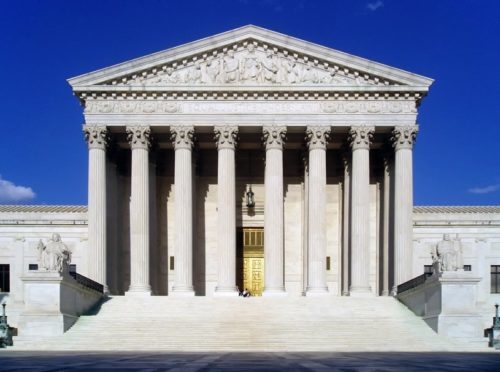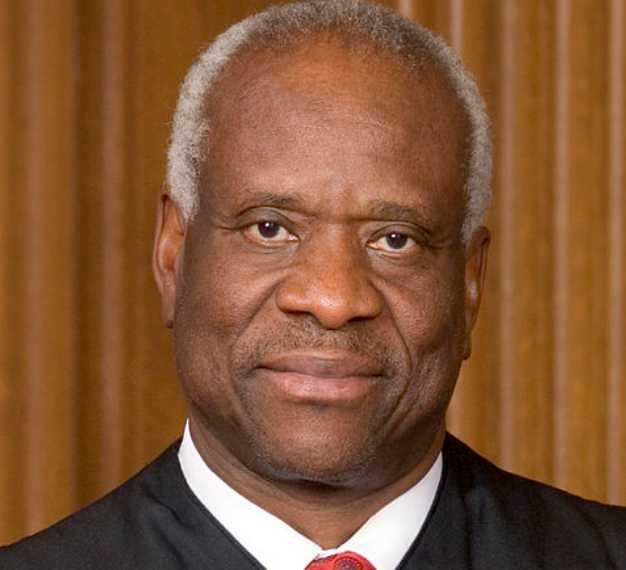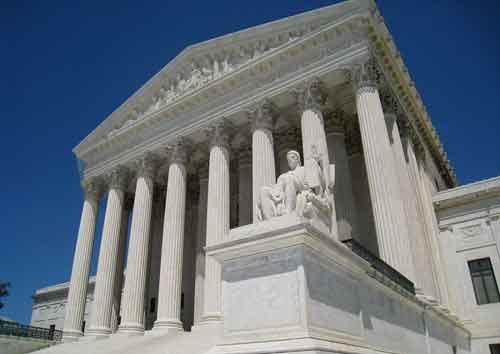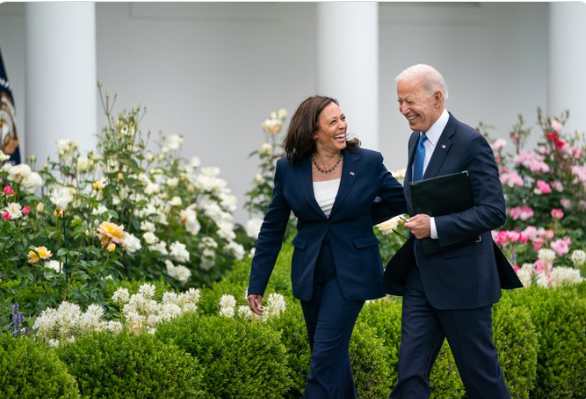“The American people deserve a fair and impartial review of Trump v. Anderson, free from any conflicts of interest.”
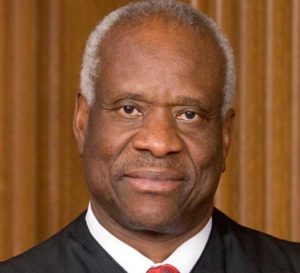
A progressive advocacy group was among those immediately calling for Justice Clarence Thomas to recuse himself after the U.S. Supreme Court announced Friday that it would hear arguments in the Colorado case seeking to bar former President Donald Trump from appearing on the state’s 2024 presidential ballot due to his role in fomenting the January 6, 2021 insurrection.
Thomas is not one of the court’s three Trump-appointed justices but has been repeatedly called to recuse himself in cases involving the events of January 6 due to the active role his wife, right-wing activist Ginni Thomas, played in the effort to stop the official certification of the 2020 election results.
“The American people deserve a fair and impartial review of Trump v. Anderson, free from any conflicts of interest,” said Christina Harvey, Stand Up America’s executive director, in a Friday statement referencing the name of the Colorado case.
“Justice Thomas’ continued refusal to recuse himself from this case and others related to the efforts to overthrow the 2020 election—efforts his wife participated in and pressured state officials to support—raises questions about the integrity of the judicial process and the influence of political bias,” Harvey said.
“As trust in the Supreme Court reaches new lows,” she added, “decisions like these only reinforce Americans’ belief that Supreme Court justices are politicians in robes. To begin to restore public confidence in our nation’s highest court, Thomas must recuse himself.”
Ginni Thomas was directly involved in efforts to overturn the 2020 election.
She even texted Mark Meadows, Trump’s chief of staff, lobbying him to help her cause.
If the new SCOTUS code of ethics were worth anything, Clarence Thomas would be forced to recuse himself. https://t.co/CvMv9g5f0T
— Robert Reich (@RBReich) January 3, 2024
The Colorado Supreme Court ruled last month that Trump should not be on the state’s primary ballot because the 14th Amendment bars anyone who took an oath to the U.S. Constitution and then “engaged in insurrection or rebellion” from holding office. As NBC Newsreports, “Among the novel legal questions presented by the case are whether the language applies to candidates for president and who gets to decide whether someone engaged in an insurrection.”
U.S. Rep. Jamie Raskin (D-Md.), a constitutional scholar and the lead Trump impeachment manager after the 2021 insurrection, called for Thomas’ recusal during a televised interview on CNN Sunday.
A letter on Thursday signed by eight other House Democrats—led by Rep. Hank Johnson (D-Ga.)—also called on Thomas to recuse.
The letter addressed to Thomas says the justice must recuse “because your impartiality is reasonably questioned by substantial numbers of fair-minded members of the public, who believe your wife Virginia (‘Ginni’) Thomas’ substantial involvement in the events leading up to the January 6 insurrection, and the financial incentive it presents for your household if President Trump is reelected, are disqualifying.”
After making the detailed case for recusal, the letter from the lawmakers concludes:
Fewer than half of all Americans trust the Supreme Court, and that number will fall even lower if you rule in this case. A justice should not sit in judgment of his own wife’s behavior, nor in judgment of his wife’s professional and financial fortunes. Yet that is exactly what you would be doing should you refuse to recuse in this case. To protect the court’s integrity and the legitimacy of its decision in this monumental case, you must recuse yourself.
In addition to the case in Colorado, Trump also this week appealed a decision by Maine Secretary of State Shenna Bellows, who determined that Trump’s actions leading up to the January 6 assault on the U.S. Capitol make him ineligible for the ballot in that state.
That case could be impacted by what the Supreme Court decides in the Colorado case, but it could also run through the federal court system on its own path. The brief from the court released Friday said the Colorado arguments will be held on February 8.
Common Dream’s work is licensed under a Creative Commons Attribution-Share Alike 3.0 License. Feel free to republish and share widely.
[content id=”79272″]



